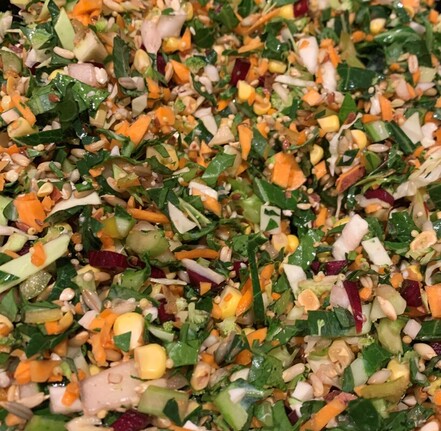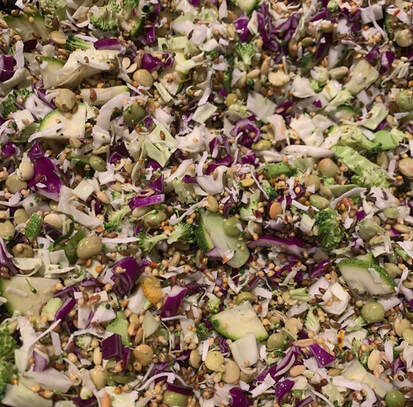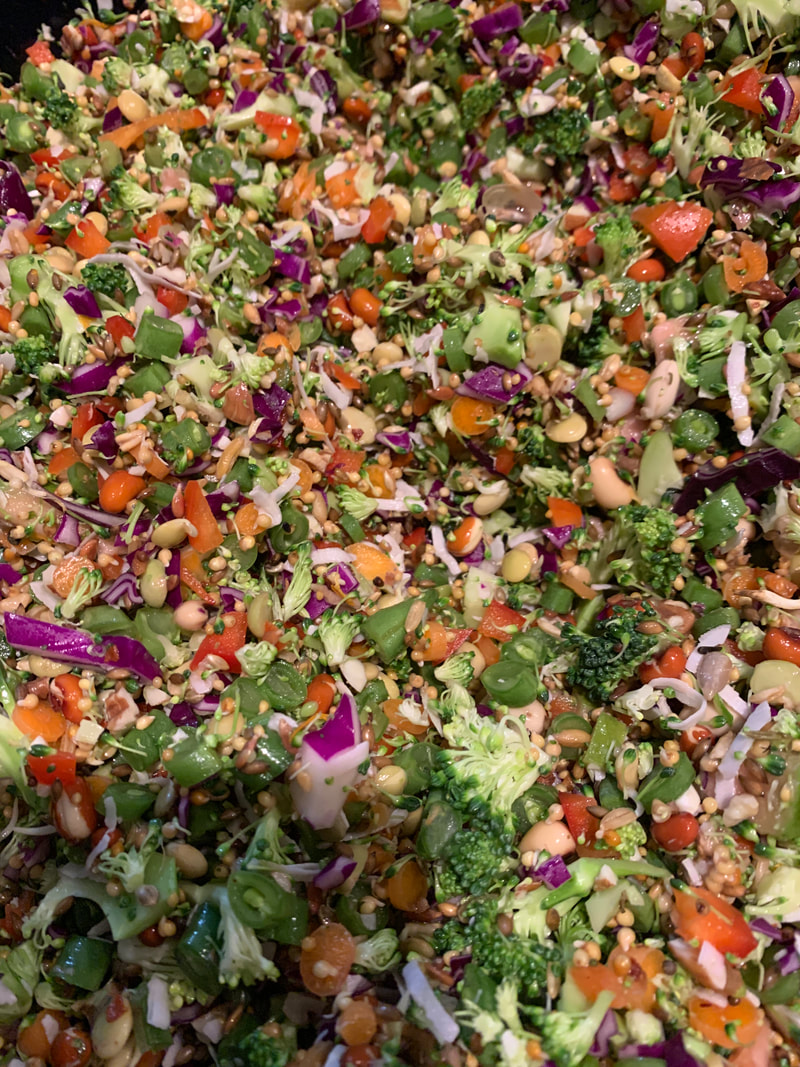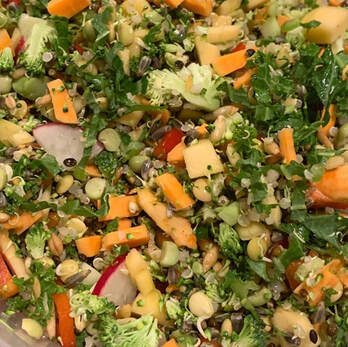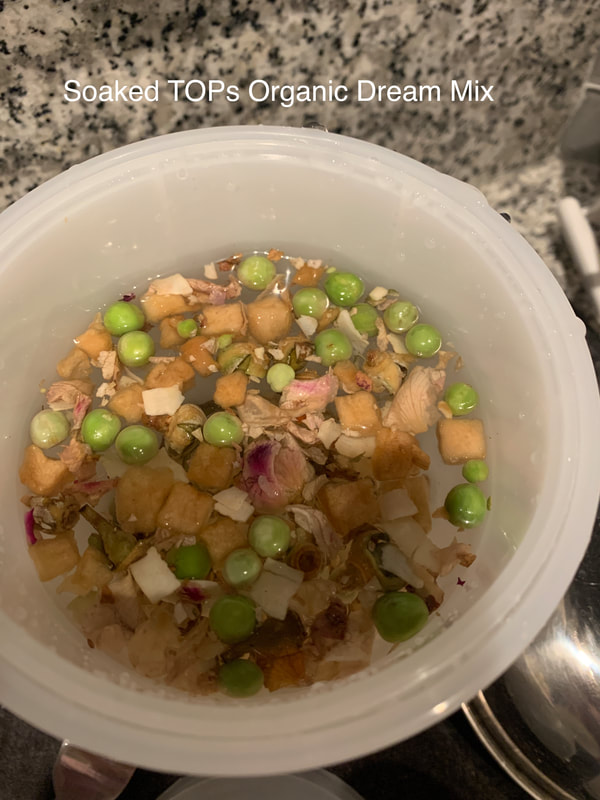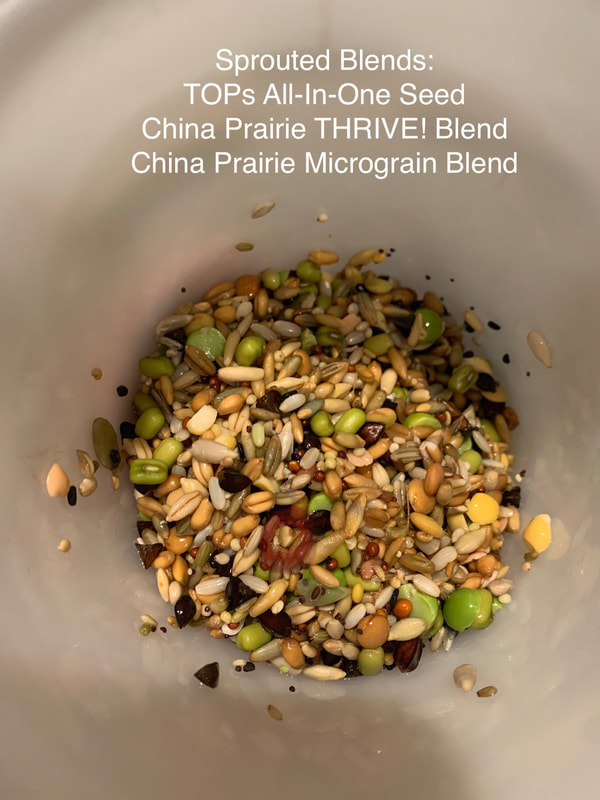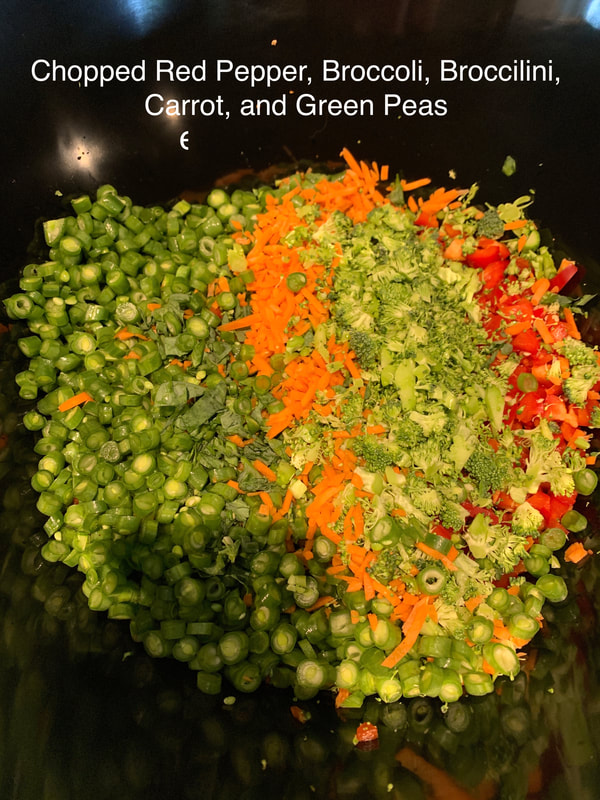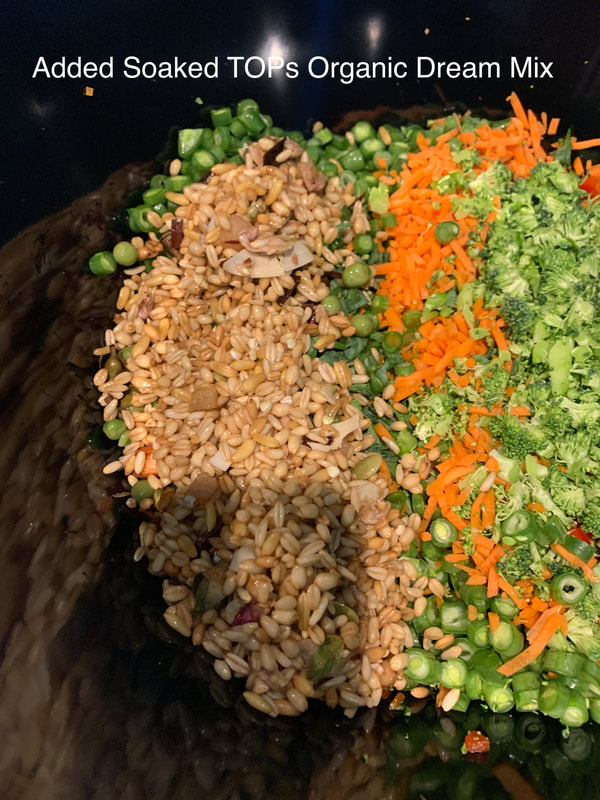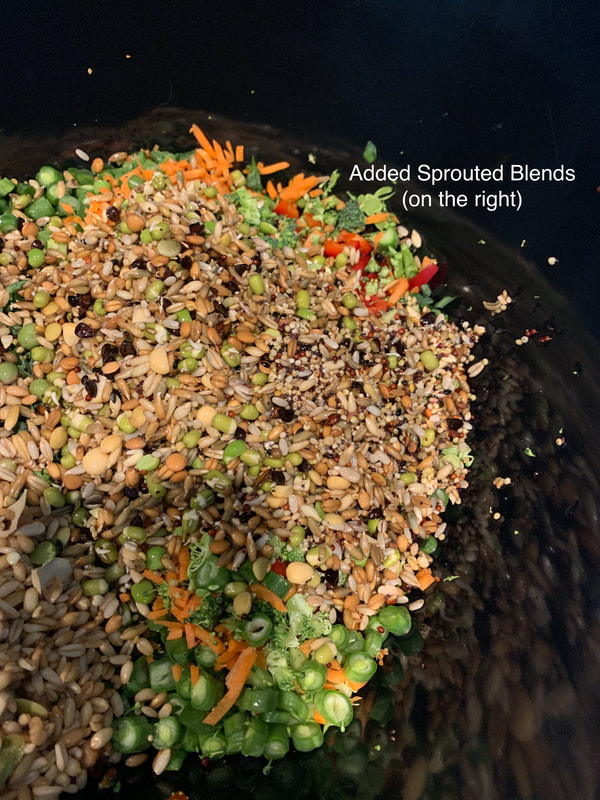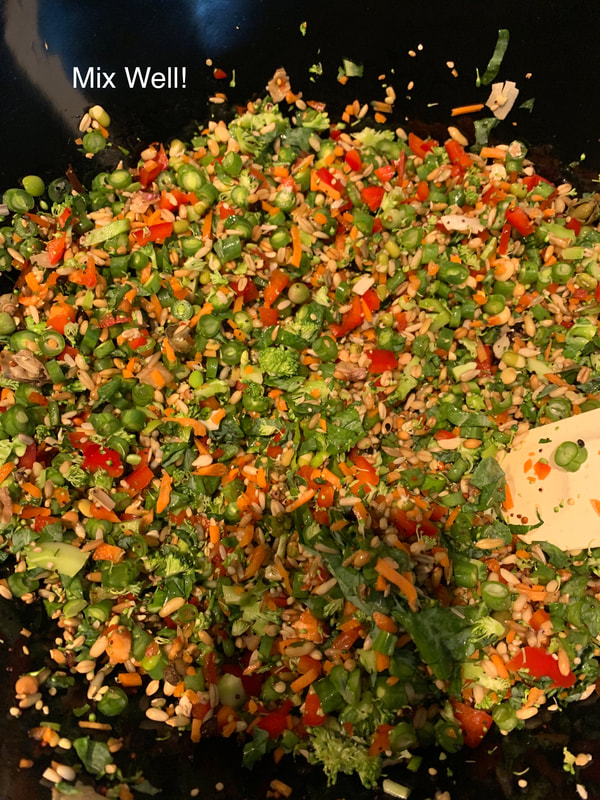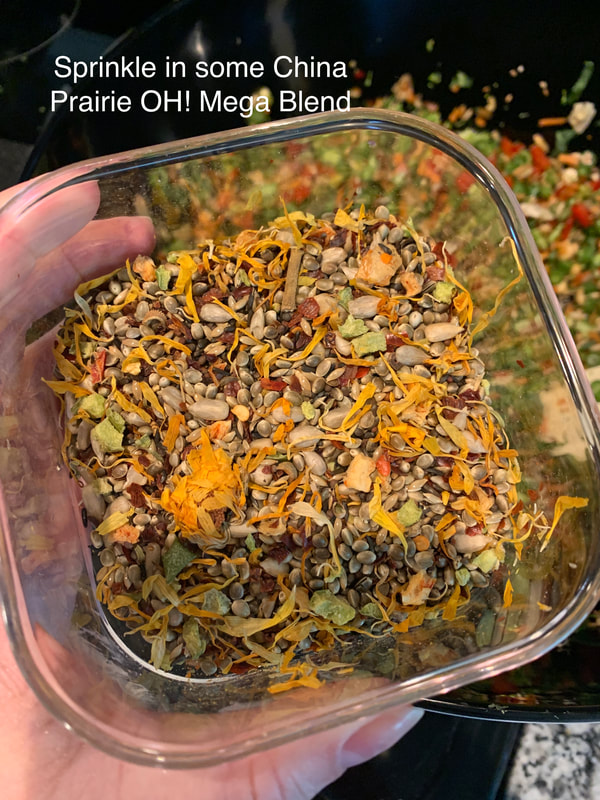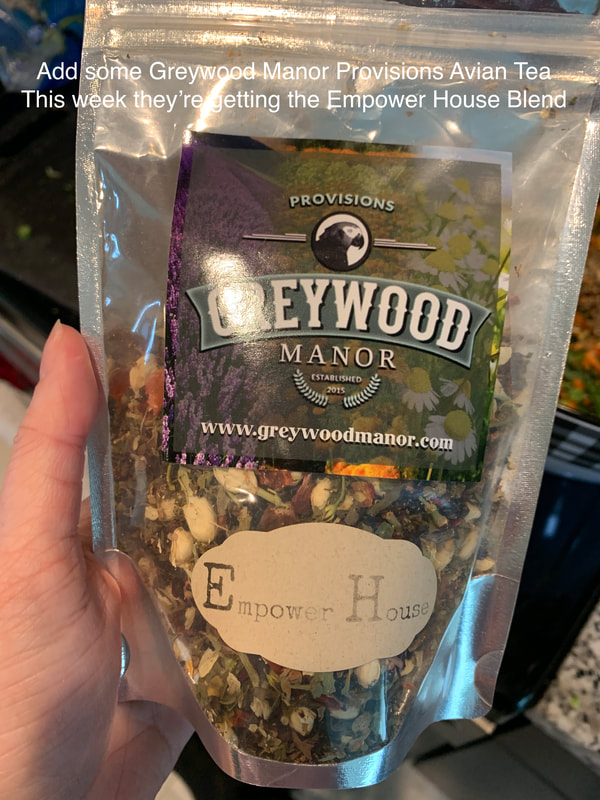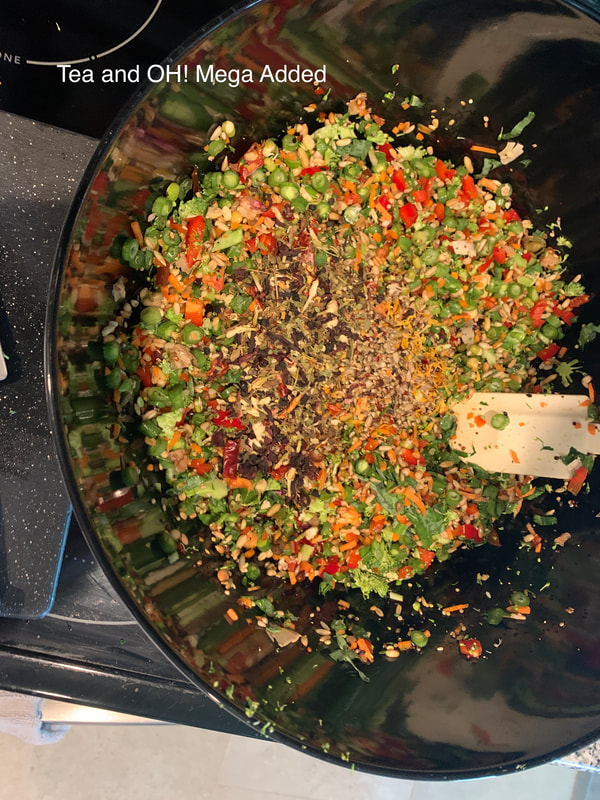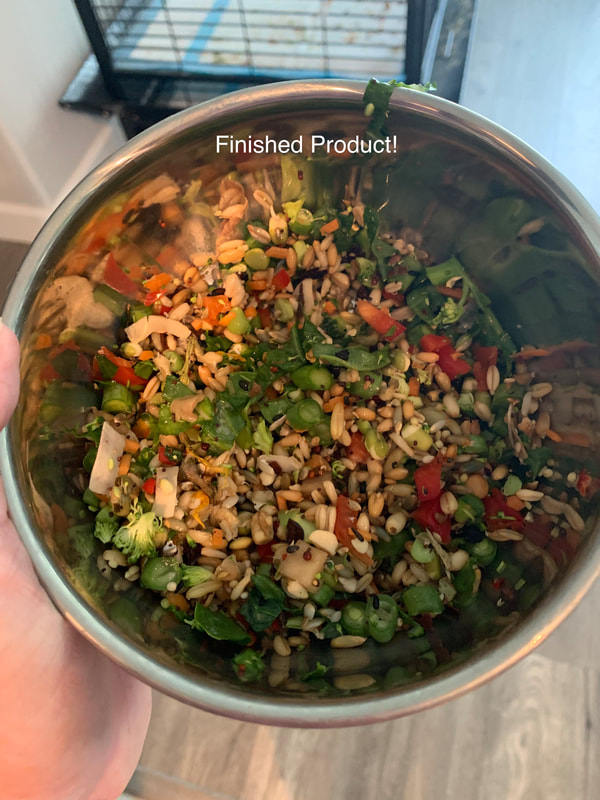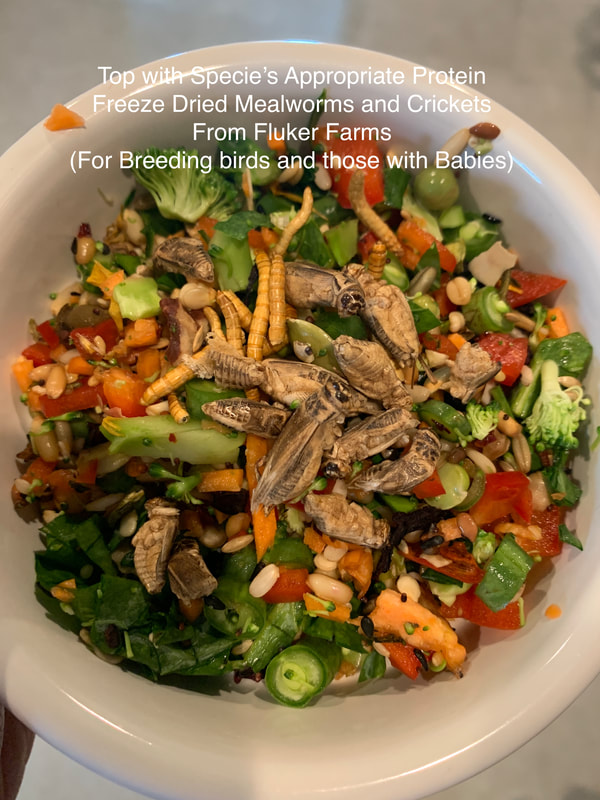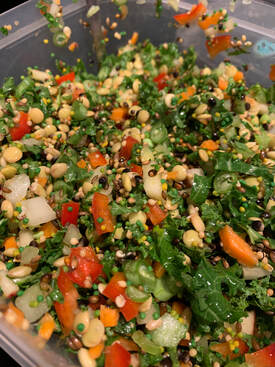Diet & Nutrition for Companion Birds
|
One of the most important factors to owning companion birds is making sure they are receiving the highest quality diet they can possibly get. Birds require protein, fat and carbohydrates in their diet in order to stay healthy. By keeping companion birds in captivity, we have a moral obligation to ensure they receive a species appropriate diet that's nutrient rich.
In companion birds, this is best accomplished by offering birds diverse, raw whole foods and a premium dry food blend consisting of ingredients such as fresh seeds, raw tree nuts, dried flowers, freeze-dried fruits and vegetables, and a high-quality pellet. |
Not only is this superior to a seed-only diet, offering raw whole foods can introduce enrichment to your birds' lives as well. By creatively allowing birds to forage, you can engage your birds mind while also feeding them the absolute best you possibly can.
Raw, Whole Foods
|
The concept of offering birds a raw whole food diet can be understandably overwhelming for new bird owners. What foods can you offer? How do you offer them? How long does it remain fresh? Do you have to be concerned with bacteria? Why won't my bird eat fresh food?
The volume of questions many people face is usually enough to stop them from ever trying. I'd like to break down a few of these questions and hopefully simplify the concept to help get you started. Once you see the difference raw whole foods make in your bird's life, you won't ever want to go back to feeding a plain seed diet! |
What Foods Can You Offer?
|
There are SO many safe fruits, vegetables, nuts, herbs, flowers, etc., you can offer your bird that listing what isn't safe may be easier. A short list of items you should always avoid offering to your birds (this is not comprehensive, just common):
|
The below are staples that I regularly use to make my raw whole food chops for my flock. Feel free to experiment with exotic seasonal fruits like Dragonfruit, Starfruit, etc! Remember, diversity is key!
The below list is in no way all inclusive - there are just examples of items I regularly am able to source and offer my flock!
The below list is in no way all inclusive - there are just examples of items I regularly am able to source and offer my flock!
|
|
|
How Do You Offer Raw Whole Foods?
|
Easy! Totally RAW! All of the fruits and vegetables above can simply be chopped up, mixed together, and served totally raw to your fids (feathered kids!). In most cases, peeling also is not necessary and the "peel" of the vegetable or fruit contain a significant and important source of natural fiber, as well as many vitamins and nutrients, that your birds need! Many people believe that in order to offer items like sweet potato and squash, they must first be cooked and this is simply untrue. In fact, cooking can impact the bio-availability of the nutrients within the foods. The best option is offering them in their raw, unprocessed form.
|
Preparing a Raw Whole Food Mash
The gallery below has images with step-by-step descriptions of each step and which part of the process is taking place in the preparation of a typical raw whole food mash made for my flock. You can click on each image to view it larger and read the description. As you can see, I am incorporating both wet and dry ingredients into this mash. This helps minimize the amount of latent moisture so nothing becomes 'soggy' while being stored in the refrigerator for further use. I am also utilizing both soaked (8-10 hours) and sprouted blends. You can find my comprehensive guide to sprouting here.
Other Commonly Asked Questions
|
3. Why won't my birds eat fresh foods?
Think of a bird like a perpetual 2-3 year old. It can take introducing a new food to a bird (or a toddler!) several times over the course of a period of months before they even taste it, let alone decide they like it! Persistence and diversity is always key. It's also helpful to identify a favorite food or high-value reward your bird DOES enjoy to incorporate into your daily mash. By mixing it in with the other new, unfamiliar ingredients, not only are you offering a foraging opportunity for your bird, but by way of searching out for their favorite delectable they will inevitably end up taste testing along the way.
If you are still in the process of researching your future companion, you can also choose to support breeders who wean their babies onto species appropriate diets (vs simply weaning onto millet/dry seed/pellets) which will make offering your new companion a raw whole food diet easy because the babies will already be accustomed to it. Enjoy this video below of a couple 2020 babies enjoying taste testing the week's raw whole food mash!
Think of a bird like a perpetual 2-3 year old. It can take introducing a new food to a bird (or a toddler!) several times over the course of a period of months before they even taste it, let alone decide they like it! Persistence and diversity is always key. It's also helpful to identify a favorite food or high-value reward your bird DOES enjoy to incorporate into your daily mash. By mixing it in with the other new, unfamiliar ingredients, not only are you offering a foraging opportunity for your bird, but by way of searching out for their favorite delectable they will inevitably end up taste testing along the way.
If you are still in the process of researching your future companion, you can also choose to support breeders who wean their babies onto species appropriate diets (vs simply weaning onto millet/dry seed/pellets) which will make offering your new companion a raw whole food diet easy because the babies will already be accustomed to it. Enjoy this video below of a couple 2020 babies enjoying taste testing the week's raw whole food mash!
